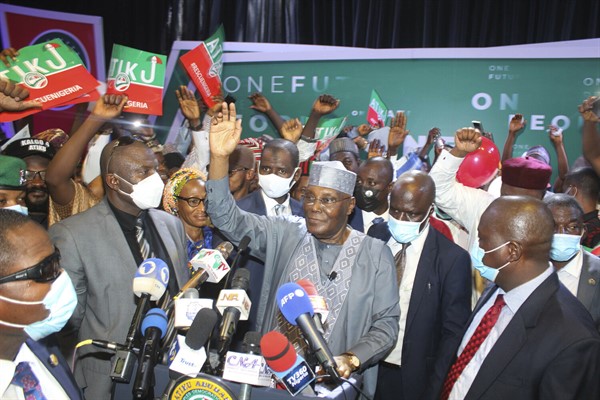Though the election isn’t until next year, the race to determine the next president of Nigeria is officially underway, as the country’s two main parties have nominated their flagbearers for the contest to succeed outgoing President Muhammadu Buhari. The ruling All Progressives Congress, or APC, has selected Bola Ahmed Tinubu, a former governor of Lagos state and a key player behind a 2013 merger of what were then Nigeria’s three biggest opposition parties, as its presidential candidate in the election scheduled for February 2023.
Tinubu’s main challengers will be former Vice President Atiku Abubakar of the Peoples Democratic Party, or PDP, and Peter Obi, a former governor of Anambra state. Obi initially declared his presidential bid as a PDP candidate but pulled out of the contest a few days before the party’s presidential primary and subsequently joined the Labour Party. A number of other candidates from other smaller parties will contest the race, but Tinubu, Atiku and Obi are expected to be the main challengers.
With roughly eight months to go until Election Day, there is enough time for new alliances to be brokered, fortunes to rise and fall and even unforeseen events to alter the race’s dynamics. While leaving the prognostication to others, here are some takeaways that have already emerged and, along with them, some cautionary notes that bear underlining.

